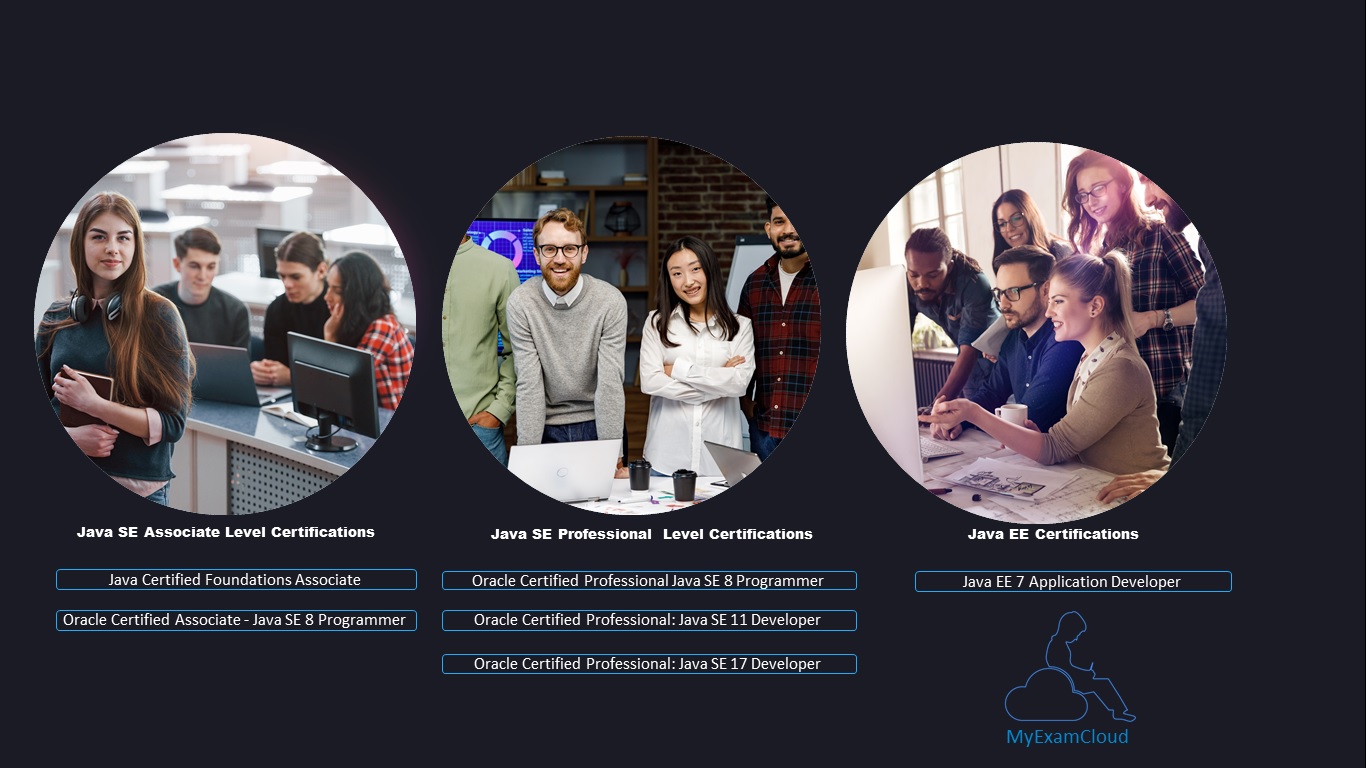
Java Certification Paths: Advancing Your Career with In-Demand Skills
Java is a highly versatile and popular programming language that is used to develop a wide range of applications, from desktop software to web applications. With the continuous advancements in technology and the importance of Java in the development world, it has become increasingly valuable for professionals to obtain Java certifications.
Certifications provide individuals with a way to demonstrate their expertise and knowledge in a particular technology or programming language. They are also a great way to stand out in a competitive job market and gain recognition from potential employers. In this article, we will discuss some of the top certification paths for Java and the benefits of earning these certifications.
1. Professional Java EE and Web Services Certification
This certification path is designed for professional developers who have experience in Java EE and web services development. It covers a broad range of advanced Java EE skills, including creating and maintaining web and enterprise applications, developing web services, and implementing data persistence using a database.
The Professional Java EE and Web Services certification also covers topics such as security, messaging, and concurrency, making it a comprehensive and sought-after certification for Java developers.
2. Java SE Certifications
The Java SE certifications are the most popular and highly recognized certifications for Java developers. They are offered at two levels: Associate and Professional. The Associate certification is designed for beginners and covers the basics of Java programming, including syntax, data types, control statements, and arrays.
The Professional certification is for more experienced developers and covers advanced topics such as generics, collections, multithreading, and database connectivity. Earning both certifications is a great way to showcase your proficiency in Java programming and demonstrate your commitment to continuous learning and skill development.
3. Java Certified Foundations Associate
The Java Certified Foundations Associate is an entry-level certification that covers the fundamentals of Java programming and serves as a stepping stone towards obtaining higher-level Java certifications. It covers topics such as Java basics, variables, operators, control structures, methods, and error handling.
This certification is ideal for individuals who are just starting their journey in Java programming and want to build a strong foundation for further learning.
4. Java SE 11 and 17 Developer Certifications
These certifications are designed for experienced Java developers who have knowledge and skills in developing applications using the latest Java SE versions. They cover a wide range of topics, including language enhancements, modules, functional programming, and security.
Earning these certifications not only demonstrates your expertise in the latest Java technology but also prepares you for future updates and advancements in the language.
5. Oracle Certified Professional Helidon Microservices Developer
With the rise in popularity of microservices architecture, the demand for developers with expertise in this area has increased significantly. The Oracle Certified Professional Helidon Microservices Developer certification covers the skills needed to develop microservices using the Helidon framework, including building RESTful APIs and implementing security.
This certification is perfect for Java professionals who want to expand their knowledge and skills in microservices development and stay competitive in the job market.
Benefits of Earning Java Certifications
1. Validation of Skills and Knowledge: Earning a Java certification is a way to prove your expertise in the language and validate your skills to potential employers. It demonstrates your commitment to continuously learning and improving your skills, making you a valuable asset to any organization.
2. Higher Earning Potential: Certified Java professionals are in high demand and can earn a higher salary compared to their non-certified counterparts. This is because certifications provide proof of your skills and knowledge, making you a desirable candidate for job opportunities.
3. Hands-On Learning: Most Java certifications involve hands-on learning through labs, study materials, and practice sessions. This not only helps you gain a deeper understanding of the language but also equips you with the necessary skills to perform complex tasks on the job.
4. Digital Badge: Upon earning a Java certification, you will receive a secure digital badge that you can add to your social media profiles, website, or resume. This badge serves as a visual representation of your achievement and can help you stand out to potential employers.
5. Exposure to Advanced Topics: Java certifications cover a wide range of topics, including advanced concepts and features that you may not have used in your previous projects. This exposure to new and advanced topics can broaden your knowledge and skillset, making you a more well-rounded and knowledgeable Java developer.
In conclusion, obtaining Java certifications can bring many benefits to your career, including standing out in a competitive job market, increasing your earning potential, and validating your expertise in the language. With the constantly evolving nature of technology, staying up-to-date with the latest Java certifications can help you remain competitive and excel in your career as a Java developer.
| Author | JEE Ganesh | |
| Published | 11 months ago | |
| Category: | Java Certification | |
| HashTags | #Java #Programming #Software #JavaCertification |


